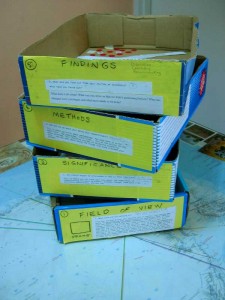
Simon says:
Dear Lisa,
Wonderful.
Yes, it is time to review what you have written so far, chuck most of it out and reshape, refine and tune it all up so that it becomes the best record you can make of how your journey has unfolded. Just because you know more now than you did then, is no cause for despair or faint heartedness.
The best advice I can give you, I have already given you (on many occasions) and goes back to where we started with the abstract and the very basic framework I gave you for structuring the thesis. But there’s no harm in revisiting the framework because this is what holds the whole thing up and sometimes it helps be reminded. So, at the risk of endless repetition:
1. What area are you working in?
This has shifted during your journey (as it should) from saving the world to facilitating the communication of scientific data. This includes what you call ‘the Lit Review’. This is where you demonstrate that you are fully aware of who else has been working in the field and that you are able to provide a critical overview of the area you are working in so that you can show where your work fits in or extends this work. It is unacceptable (hubris) to think or say that what you are doing has never been done before. Everything has been done before in some way or sense.
2. What’s the problem that you are trying to solve?
This is where you show how the problem you are addressing is not something you’ve plucked out of the air but comes from your profound understanding of the area. You should be writing about what you learnt from the Antarctic scientists during your interview phase – i.e. you write about what came out of these interviews that made you convinced that your work could fill a gap or answer a question (How can Animation be used to…)
3. Why should anyone be interested or why is this important?
This is where you can have your say about the importance of communicating the data to others, climate change, feed-back from Antarctic conferences, artists etc
4. How did you go about your doing this research/work?
This is where you write about methodology. You have much to write about here: the interviews, field trips, role of the online (b)log, dance workshops, your iterative process of animating scientific data….how you went about doing the things that have informed your project.
5. What did you find out from your journey of discovery?
What have you found out?
Please don’t hang on to chunks of text just because you have written it before. If you spend too much time cutting and pasting it will no longer be fresh and will feel like a collage. You are composing this work as if it was a large piece of music.
You now have a lot to do in a short time. Don’t be distracted.
I hope this helps.
Best wishes
Simon
On Thu, Aug 20, 2009 at 6:12 AM, I wrote:
> Dear Simon,
>
> I have been feeling in a muddle this past week, and that I have wasted heaps of time. Now I feel quite stuck.
>
>I see Antarctic Encounters animations as experiments that helped me work through ideas for making Antarctic Energies (and another animated film that only exists in my mind at this stage).
>
> My Methods chapter is very thin because at the time I wrote it I had not yet made anything that seemed to solve any problems I had set myself – integrating my insights with those of others. I had trouble even thinking about methods before having made Antarctic Energies.
>
> Only when writing the last chapter could I write about methods. The whole thesis writing process has felt rather contrived, because it often seemed out of sync with the process of making. It has felt very forced, writing within the formal thesis structure, and yet writing for the sake of writing has not make much sense either.
>
> Now it feels contrived to be writing in the Lit. Review about what I PLAN to do now that I have done it.
>
>
>
> I look forward to your feedback on what I have written in the Conclusion, and how to proceed from there to the editing process.
>
> Walking and talking with you has been very inspiring for reflecting on the big ideas, but now I am asking for specific, written comments on the writing I have sent you, to help me structure the thesis.
>
> Although I have excellent notes on the function of chapters in a traditional thesis, and what they should contain, somehow I continue to struggle reconciling the writing with how making has
> actually occurred.
>
> I feel sure that all I am saying is just part of the struggle many arts-based researchers have faced before, and that this is just another stage in the thesis writing process.
>
> I can understand how many people bomb out at this stage. Although I know I have made a lot of progress towards completing, everything suddenly seems overwhelming.
>
> Sorry to send you this rant, but I am asking for some help getting through this impasse.
>
> Best wishes,
>
> Lisa
>
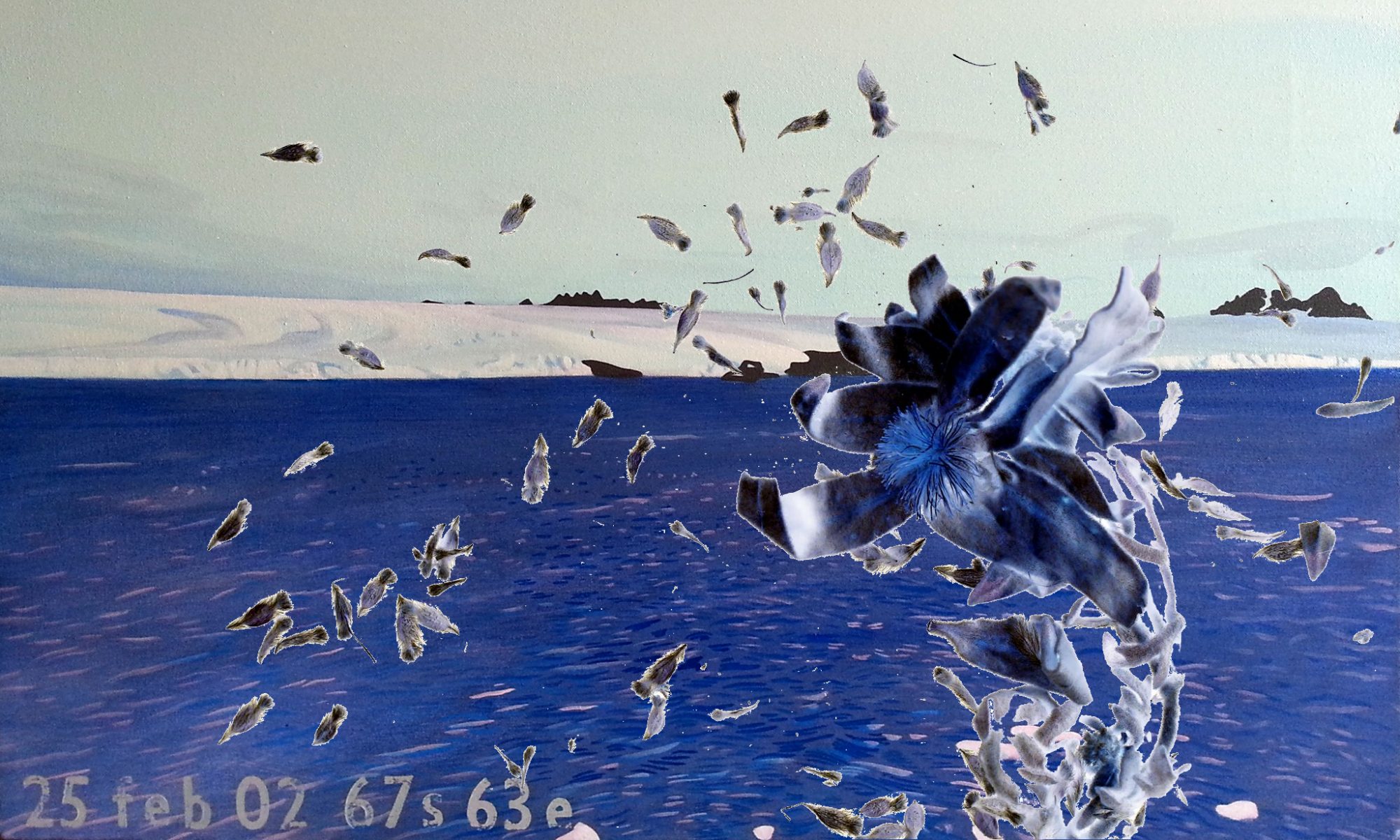
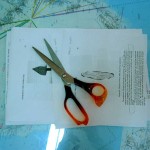
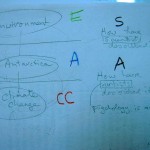
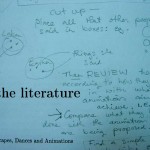
Dear Lisa,
I am totally there with you on this. I am in the same boat, VERY STUCK and I am only editing a chapter!!! I arrived at the same point a week ago as per your comments and frustrations. I was correcting a chapter as per my supervisor’s suggestions and couldn’t answer simple questions about what I was actually attempting to do.
So had to stop and go back to the beginning and pick up pencil and paper (no computer stuff) and try to work out what was happening with the written text.
Simon’s comments are excellent and I will ‘pinch’ them to try and sort out what is happening with my writing. I have also worked with a good friend, as an outside supervisor who has received her Phd, to work through the problem and she has suggested a way of working through it.
I had to get back to my original proposition which is what Simon is suggesting and go from there which at this point seems to be working.
You have come so far and it is ALL there!!!! Don’t worry about it being contrived, I think all Phd’s are contrived for artists, just keep going. You/we need to let go of false fences/blockages such as ‘contrivance’ and just work through your/our interests. These false fences are just little ego thoughts that are telling us we are not good enough WHEN WE ARE!!!!!
GO GIRL!!!!
PS I am writing this for me as much as for you.
Hi Peter,
It’s wonderful to know that you understand this experience!
And how interesting that you too have returned to pencil and paper.
Don’t imagine for a minute that I am editing the whole thesis yet. I only have a vague idea of its final shape.
On the advice of a friend I have started to chop up the Lit Review, which I wrote before I knew much at all.
Folders are now filling with snippets of material which I am putting into these new categories:
Environment
Climate Change
Antarctica
Dance
Drawing
Animation
I’ll review how scientists and artists have described these things in terms of how the animations that I have made describe Antarctica.
I immediately see gaps in my reading.
I can’t pretend be an expert on the Environment or Climate change.
However, I am slowly becoming an expert in Antarctic Animation. This simply means that I know what other people have made in this field and where my work fits in. It took me a while to work out that I could use animation to describe the Antarctic ecosystem with a sense of human connection to it. This certainly was not my original aim!
Would you agree that we need to carefully define every word we use because it’s our imagery, in the end, that we are learning to name?
Your response is most encouraging.
Thanks Peter!